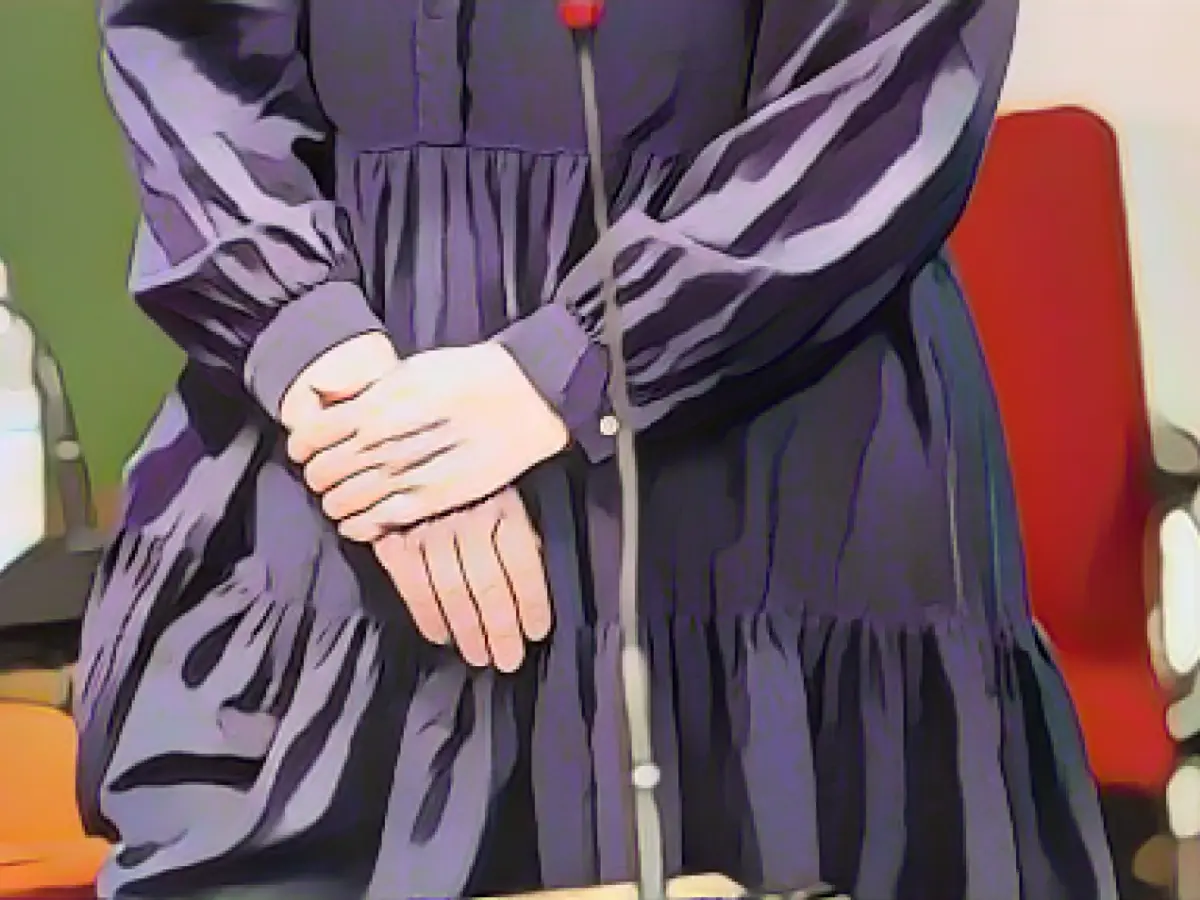Tax reproaches - Deal in mask trial: Tandler to serve over four years in prison
The politician's daughter Andrea Tandler faces at least four years and three months in prison in the tax trial surrounding the coronavirus mask affair in Bavaria. Her co-defendant business partner N. is to serve at least three and a half years in prison. This is according to a plea bargain proposed by the Munich I Regional Court, which all parties to the proceedings agreed to on Tuesday.
The two defendants then largely admitted the tax evasion charges against them through their defense lawyers. In addition, both have since made amends for the tax losses incurred. The verdict is to be announced on Friday.
Specifically, Tandler faces a sentence of four years and three months to four years and nine months. For N., presiding judge Andrea Wagner specified a sentence of three years and six months to four years. In their plea, the public prosecutor's office then demanded a sentence at the upper end of the sentencing range, while the defense lawyers pleaded for sentences at the lower end. This was preceded by a plea bargain last week.
The arrest warrants against the two defendants could be suspended on Friday - the public prosecutor's office also agreed to the court's proposal. This would mean that both would be released after around eleven months in pre-trial detention. According to her lawyer, Tandler, who is suffering from health problems, will then probably have to undergo another operation.
Tandler is the daughter of former CSU General Secretary and former Bavarian Finance, Economics and Interior Minister Gerold Tandler. At the beginning of the coronavirus pandemic in 2020, she brokered deals with various federal and state authorities on behalf of a Swiss mask supplier. Commission payments of almost 50 million euros were made for this - which is legal in itself.
However, the public prosecutor's office accuses Tandler and N. of not having correctly paid tax on the commissions and thus making themselves liable to prosecution. At the end of the proceedings, the public prosecutor's office put the total economic loss at 7.8 million euros.
Specifically, Tandler was accused of unlawfully paying tax on the commissions via a company rather than as an individual. As a result, she had to pay significantly less tax overall. In addition, N. is said to have received half of the shares in the newly founded GmbH, although he had not previously contributed anything - this was the basis for the accusation of gift tax evasion.
The accusation of trade tax evasion, in turn, was based on the fact that the income from the mask business was not taxed in Munich, but in Grünwald. Compared to the state capital, only around half of the trade tax is due there. However, according to the indictment, Munich was the "place of management".
On Tuesday, the defendants largely admitted the tax evasion allegations with regard to income tax and trade tax through their defense lawyers - including the fact that a joint company between the two did not exist until a few weeks later than originally claimed.
The public prosecutor accused Tandler of a largely tactically motivated confession and a "particularly high level of criminal energy": "In fact, her aim was to pay as little or no tax as possible." Tandler herself, however, said in her closing remarks that she would not make the same mistakes again today. She could only apologize.
The proceedings regarding gift tax evasion and coronavirus subsidy fraud were discontinued by the court on Tuesday with the consent of the public prosecutor's office. Also due to the reversal of a gift, the total amount evaded was reduced from 23.5 to 11.9 million euros; the economic loss was reduced from 15.2 to 7.8 million euros.
N.'s defense lawyer sharply attacked the tax firm that the two defendants had turned to. Both were "victims of a blatant failure of advice". "With the right advice, these two defendants would never have ended up in the dock." However, the lawyer also conceded that there was "no question" that his client should be found guilty of the accusation of trade tax fraud.
In a plea bargain, criminal judges agree with the parties involved on the approximate verdict. The prerequisite is usually that the defendant confesses. The court can then say, for example, what the expected sentence will be. The plea bargain is reached if the defendant and the public prosecutor agree. The key points are regulated in section 257c of the Code of Criminal Procedure.
Read also:
- A clan member is punished here
- Traffic lawyer warns: Don't talk to the police!
- Will he be convicted as Jutta's murderer after 37 years?
- He also wanted to kill his cousin
- The tax trial related to the coronavirus mask affair in Bavaria involves Andrea Tandler, whose father was a former minister, and her business partner.
- The public prosecutor's office in Munich accused Tandler and her partner of tax evasion related to commissions from mask deals.
- Andrea Tandler's tax evasion charge involved paying taxes through a company rather than as an individual, leading to lower overall tax payments.
- The public prosecutor's office also accused Tandler's partner of gift tax evasion by receiving shares without contributing anything.
- The trade tax evasion charge was based on income from the mask business being taxed in Grünwald instead of Munich.
- Andrea Tandler's lawyer criticized the tax firm that advised the defendants, indicating a failure in advice that led to their situation.
- The Munich I Regional Court proposed a plea bargain that would reduce the sentences for both defendants in exchange for their confessions.
- The public prosecutor's office in Munich agreed to suspend the arrest warrants against Tandler and her partner after they served around eleven months in pre-trial detention.
Source: www.stern.de








